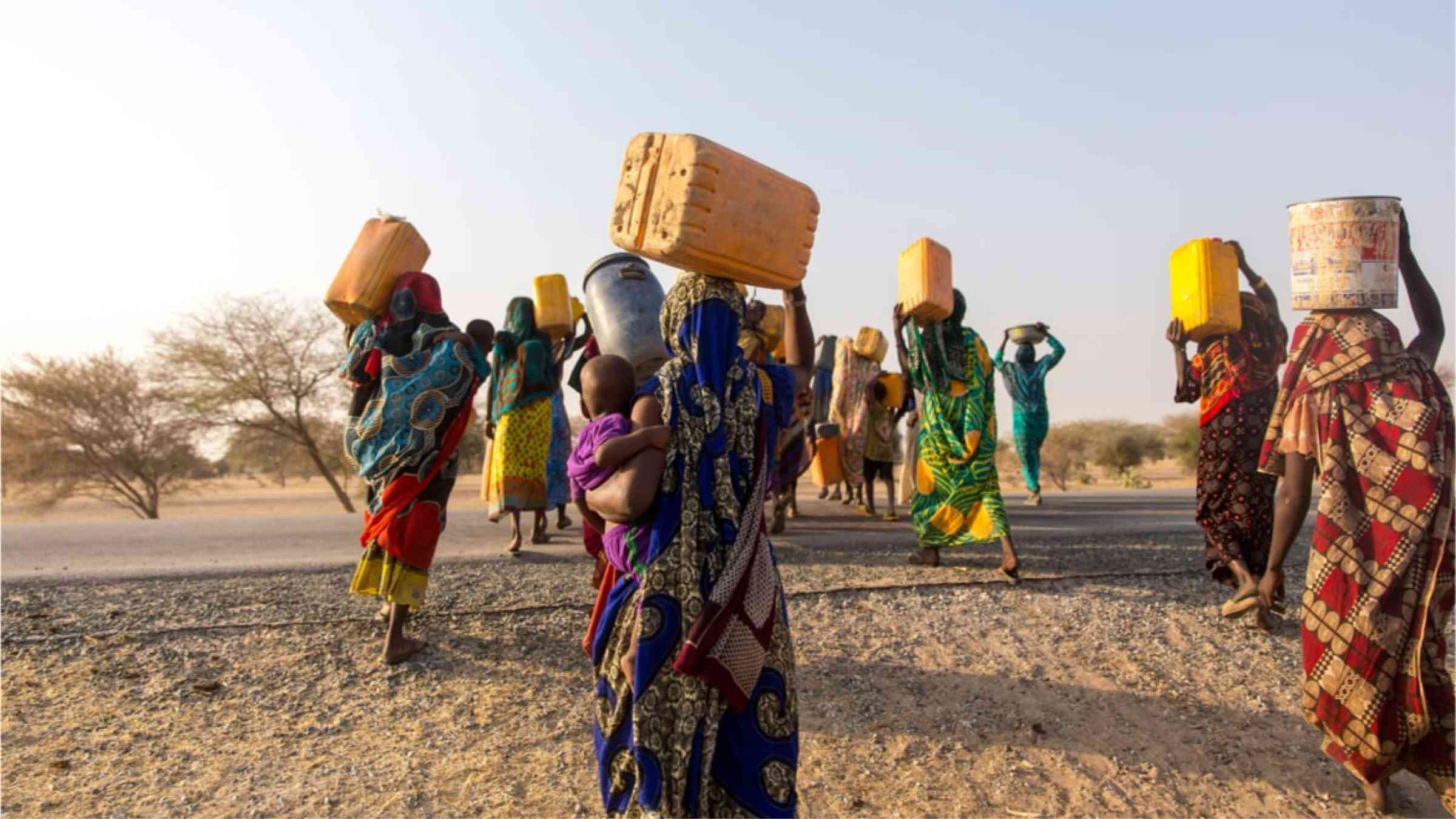Drought resilience pays off: up to tenfold return on investment

Innovative finance imperative to unlock the social, economic, environmental, and risk-reduction benefits of drought preparedness
Bonn/Stockholm – Preparing for droughts, instead of waiting until they strike, saves lives and livelihoods. Building drought resilience comes with an array of social and environmental co-benefits, and the economic returns are between 2 and 10 times bigger than the initial investment, according to new analysis by the UN Convention to Combat Desertification (UNCCD).
The policy brief ‘Investing in resilience: Innovative finance for drought preparedness’, demonstrates that enhancing resilience is one of the most cost-effective actions countries can take, and is typically far less expensive than interventions focused on responding to the impacts of droughts. But innovative financing mechanisms such as insurance schemes, risk pools, and government issued bonds are essential to fund the necessary long-term investments.
The Spanish Deputy Prime Minister for Ecological Transition and Demographic Challenge, H.E. Teresa Ribera, said: “As we know too well in Mediterranean countries, drought can devastate vital economic sectors such as agriculture and tourism. Our planet reached the hottest month on record in July: a reminder that investing in early warning systems and better land and water management is not a choice, but an existential imperative.”
The Minister for Environment, Climate Change and Forestry of Kenya, H.E Soipan Tuya, noted: “With the Africa Climate Summit just days away, the need to invest in drought resilience becomes both urgent and clearer. By building our preparedness to drought, we also pave the way for a resilient tomorrow that echoes our commitment to combat climate challenges and chart a course toward prosperity for Africa and the world.”
Mobilizing investments in drought resilience is a key pillar of the International Drought Resilience Alliance (IDRA), a growing coalition of more than 30 countries and 20 institutions driving drought resilience in the face of climate change that is hosted by UNCCD.
Benefits beyond mitigating risk
Investing in drought resilience comes with a triple dividend: it helps avoid future losses; reduces risk, boosting productivity and innovation; and can improve human health, rural livelihoods, soil and water quality and climate change adaptation, among other benefits. For example, improving early warning systems and weather forecasts could save 23,000 lives and up to USD2 billion in developing countries every year.
According to the brief, sound economic evidence is essential for decision- and policy-making. An investment of USD 1.8 trillion in resilience and adaptation, focused on five priority areas from 2020 to 2030, could generate USD 7.1 trillion in total net benefits. Also, for every USD 1 spent in building resilience there could be up to USD 3 in benefits from reduced need for humanitarian aid and avoided losses.
Innovative finance solutions
Despite all multiple benefits, the costs of drought to societies and economies are often underestimated and investments in drought resilience are insufficient. Over the past decade, for instance, the official development assistance linked to disasters reached USD 141 billion, but only 5 per cent was allocated to preparedness.
The public sector will continue to be a major source of finance for drought resilience, meaning that governments must both make a more effective use of existing resources and increase available funding through innovative finance options.
The policy brief encourages governments to incorporate drought preparedness into existing financing plans, and to leverage a mix of financial strategies such as national disaster funds, credit lines, social protection programmes and weather-indexed insurances.
Policies, regulations and environmental, social and governance (ESG) standards can make it easier for private actors to invest in adaptation and resilience while staying competitive, and blended finance arrangements can draw on public resources to de-risk private investment.
UNCCD’s Executive Secretary Ibrahim Thiaw said: “Droughts are one of the world’s costliest and deadliest natural hazards, and they are hitting harder and faster because of climate change. Decision-makers must urgently leverage innovative financing mechanisms to boost resilience and deliver new economic opportunities for their countries, communities and companies.”